Review for Warp Frontier
As with epic blockbuster movies versus thoughtful micro-budget indies, games can have wildly different goals and budgets. Some titles (especially from big-name studios) are highly polished but superficial: pretty, well-paced, and smooth to play, but with little new or interesting to say. They're safe, bankable, and unchallenging. And then there are games like Warp Frontier, which aren't afraid to go their own way and aim to tackle meaningful ideas, even if that means bumping into a few rough edges along the way. Australian developer Brawsome, previously known for lighthearted romps Jolly Rover and MacGuffin's Curse, has taken a turn into serious sci-fi territory this time around, following a 23rd-century war veteran who stumbles upon a grotesque conspiracy. More The Expanse than Star Trek, some mechanical awkwardness is easily forgotten as you dive into its thoughtfully realised world, relatable characters, and all too believable story.
It's 2215 and Vince Cassini is a veteran of the brutal war against the Locans, a conflict that made his home planet of Cetus all but uninhabitable. Pushed out to an orbiting habitat known as The Rust, he's built a new life for himself in the decade since as a captain in the Cetus Orbital Police (or COP), but he's still haunted by memories of the atrocities he witnessed and the friends he lost. Grumpy and occasionally erratic, he's taken to patrolling the system's asteroid belt in a vain attempt to discover their fate. It's a quiet, dark place to brood, but today his reverie is violently interrupted by a Locan ship fleeing with curious cargo from a couple of space pirates. Caught in the crossfire and with his own ship bleeding air, he's left scrambling to make emergency repairs before setting off in pursuit.
This seemingly minor incident sets events in motion that will take Vince down a deep, disturbing rabbit hole to uncover dubious wartime activities, ongoing profiteering and exploitation, and ultimately a devastating scheme that cuts to the heart of what it means to be human. For Vince, the investigation brings disturbing flashbacks, but also promises the chance for closure and hope for the future.
The world of Warp Frontier is packed with small details and interesting ideas, presenting a future where humans, for all their advanced technology, still struggle against both the harsh realities of life in space and more everyday concerns. There are Machiavellian corporations and mysterious factions, asteroid artists and gene modders, colonists and mercenaries. Wherever you look, there are subtle touches packed in around the main story to make this feel like a real society. That said, it throws so much at you right from the start that even potentially significant details can easily be overlooked or seem shoehorned in.
An example of this is my discovery that Vince actually helped found the COP after unofficially policing the lawless post-war colony, but only when I happened upon a commendation on the station wall. Likewise, Areela casually calls Vince “Tin Man,” on account of his (otherwise barely mentioned) artificial heart and the reputation that grew up around it. It’s clear that there’s a lot more lurking in Vince’s past than the fast-paced story gives us sufficient time to fully explore. After a slightly overwhelming first playthough where it was all I could do to keep track of the main storyline, the many extra details sank in better the second time around to create a much more satisfying experience. This is definitely not a game for the impatient if you want to get the most out of it.
The 2.5D graphics are an interesting mix of near-photographic realism and more stylised hand-drawn art, with some scenes sharply rendered and others feeling more like movie concept art. The settings are often pretty static, the animation is a bit stiff, and there's the usual sci-fi predominance of blue and grey, but that still leaves room for plenty of charm and variety. There's a striking contrast between the eccentrically cobbled-together Rust, with its lofty catwalks, steaming pipes, and rickety market stalls; and the vast, austere, and sterile perfection of the Locan Facilities. Not to mention the startling tropical sunshine and blue skies of Cetus itself. Just going for a spacewalk is a treat, with the glowing blue ball of Cetus ringed by asteroids with the Milky Way in the background.
Music is used sparingly, leaving many environments left to speak for themselves. On Vince's ship, the constant ambient hum of the engines is only interrupted by the swish of doors or the whoosh of the ventilation system. Corridors echo with the whirr of fans, and outer space is appropriately silent, with just the faintest whump of thrusters. When it does kick in, though, the score is often beautiful, with gentle, affecting guitar and piano at moments of high emotion, shifting to ominous synths and strings at tenser times.
The acting is also pretty good, with Vince's gruff but heartfelt delivery being a particular highlight, though only conversations (and occasional comments by Vince) are voiced. It's also refreshing to hear some less-common accents, thanks to a mostly Australian voice cast (including the lead developer himself). After a tense scene, hearing a giant robotic tank greet Vince with an excited, "Vince! Mate!" definitely made me smile.
The interface is pretty standard point-and-click for the most part: your inventory sits along the bottom of the screen (small and discreet until you mouse over it), and you drag objects to use or combine them. Hotspot descriptions pop up as text at the top of the screen, and all other interactions are handled by right-clicking. There are some unconventional design choices, however, particularly the inventory, which gets a little metaphysical at times. In addition to the physical objects you're carrying, it can also include topics you might want to ask people about, once triggered, and occasionally nearby objects you need to interact with, such as Vince's floating robotic partner, MAC.
To ask MAC to head into a vent, for instance, you need to drag him from your inventory onto the vent, rather than talking to him and asking him directly. Likewise, there are certain things you can only ask about by dragging the information from your inventory. I suspect this is to avoid giving away puzzle solutions via unexpected dialogue options, but it does take a bit of getting used to. Your inventory also includes items, such as a photo of Vince's family, that he is sentimentally attached to but never needs to actually use. While this makes sense given his character, it can also lead to a bit of extra scrolling and searching to find the objects you need.
In another unusual touch, hovering the cursor over Vince gives you insight into his thoughts, or at least what you need to do next, acting as both a gentle hint and potentially a refresher to players coming back to the game after time away. There's also a more comprehensive hint system that does a pretty good job of nudging you in small stages toward the solution. It doesn't seem to account for your progress, meaning you may need to click through steps you've already done, but it's otherwise pretty helpful, especially given how tricky some of the puzzles can be.
Speaking of which, the puzzles are another highlight. They’re logical, almost always fair, and not overly convoluted in their solutions, but I still had to stop and think to work my way through them, leading to several satisfying "aha!" moments when I got it. Vince has his work cut out for him, what with having to trap a gun-toting robot, sneak a bug into the office of a corrupt mining boss, and reveal the locations of not just one but four cloaked space stations, all without getting written up by the pedantic and judgemental MAC. With a little extra thought, you can also help him take some simple optional steps that make all the difference to those around him, leading to some touching moments.
I did manage to get stuck a few times, mostly due to dismissing objects as irrelevant that later turned out to be essential, but the areas are small and self-contained enough that I got there in the end. That said, a rare but unwelcome curveball is tossed in occasionally, the most memorable of which concerns a huge fan in a dead-end room in a mine. You have to extract a couple of components from it, but they don’t show up (even using the hotspot highlighter) until you happen to walk right up to it, activating a kind of X-ray view into the mechanism. It seems like a small thing, but with no reason to go there, and no help from the hint system, that’s half an hour of frustrated wandering I’ll never get back.
Surprisingly, though the areas may be fairly small, you'll still find yourself doing a fair bit of awkward backtracking at times. For example, one section features a series of mine tunnels, each with a door that needs one of a limited number of fuses to power up and open. Cue (at least in my case) a lot of wandering back and forth to work out what was where, inserting fuses and then removing them again to use elsewhere. Just leaving your ship involves going into the cockpit, having a chat with the ship's computer to activate the right settings, and only then heading out. That's wonderfully realistic, but given that you have to repeat these steps over and over to get anywhere, I would have really appreciated eventually shifting to a more streamlined process.
Warp Frontier’s story tackles some pretty serious topics, exploring both the horror and camaraderie of war and the effects of Vince's PTSD on his life and family over its five- to seven-hour runtime. This all ties into another plot thread about artificial intelligence and the nature of human consciousness that leads to some gut-wrenching moments. That sounds heavy, but it's leavened considerably by office banter with receptionist Barb, artist Areela vibing about her "ballistic art" (otherwise known as spattering nearby asteroids with paint, Jackson Pollock-style) and Vince's endearingly awkward (and occasionally fourth-wall-breaking) discussions with MAC. These are people who've been through a lot, but (along with Vince) are getting their lives back together, and there's a definite undercurrent of hope for the future.
Vince's relationship with his family deserves special mention, both because it's a recurring theme and because it presents you with some genuinely tricky choices. His relationship with his wife Trish and his three children starts out rocky, but that can change if you choose to engage with them, such as by supporting Trish in dealing with the children or finding a way to get a birthday present for your daughter Dahlia. Or it can suffer as you focus on your work instead. For reasons that become clear as the story plays out, Vince has some agonising choices to make here, leading to different but always bittersweet possible finales.
With a premise that could easily have gone in a dark and uninviting direction, Warp Frontier manages to take some serious sci-fi ideas, mix them up with a dash of space adventure and a helping of bonhomie, and make them engagingly accessible. It’s a little unwieldy at times in its execution, but it tells a meaningful tale set in a believable future, thoroughly fleshed out and populated by diverse, empathetic characters. Instead of presenting easy answers, it explores difficult questions, buoyed by heart and good humour and mixed through with challenging puzzles. That's a difficult line to tread, and the result is a memorable, occasionally frustrating, but thought-provoking experience. If you're looking for some serious sci-fi, chewy puzzles, or just something a little different, I can definitely recommend diving into Warp Frontier.




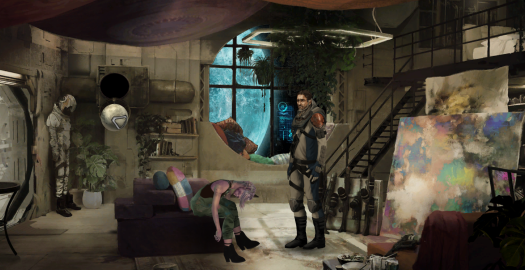
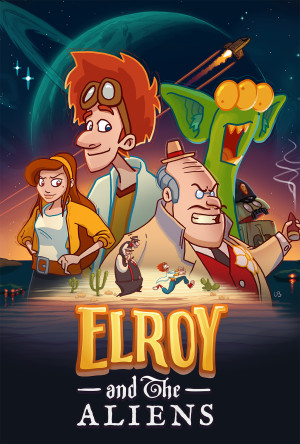
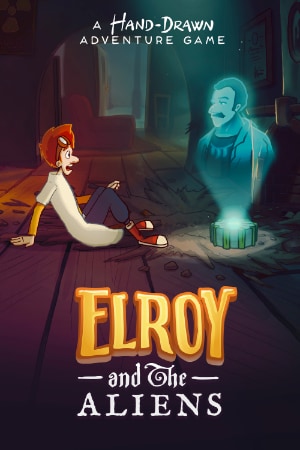





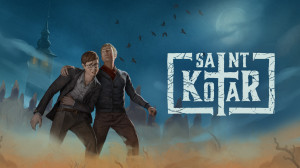



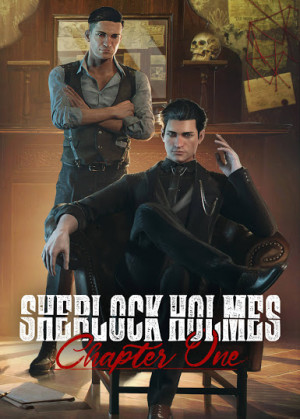

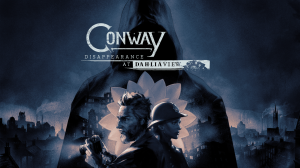








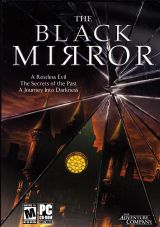

__small.jpg)
